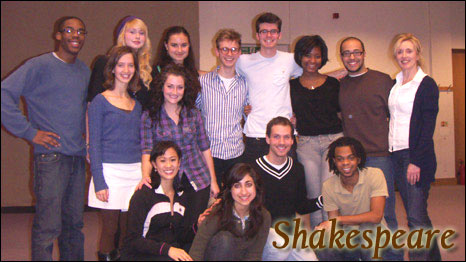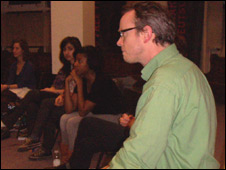音频精选
Acting Shakespeare 表演莎剧

These students from Rutgers University find acting Shakespeare very rewarding
本集内容
很多人以为读莎士比亚犹如读古汉语深奥难懂,因而蹑足不前。不过正在伦敦环形剧院排练莎剧的一组美国大学生可不这么认为。
收听与下载
How relevant is Shakespeare to learners of English in China?
It seems that it's hard enough for a non-native speaker of English to pick up modern English words and phrases let alone 更不用说 to appreciate Shakespearean sonnets 十四行诗 and plays.
But is it really that difficult? Yang Li and William Kremer went to the Globe theatre to talk to a group of American students doing theatre training.
This is just part of what they said:
Shakespeare is universal, no matter what language you speak, no matter what country you're from.
You couldn’t possibly do Shakespeare without increasing your confidence in every way I think, not just in your speaking but also in your emotional confidence and your courage to express yourself clearly and forcefully.
The biggest fear in Shakespeare is the one that you put on yourself; so I would say: be open to it and just have fun with it.
Listen to these young voices and find out why learning Shakespeare can be full of fun for learners of English.

Tim Carol is keen to teach students iambic pentameter
As you listen try to answer these questions (the answers are below):
1. Is accent important in performing Shakespeare?
2. "Don't be intimidated". What does this mean?
3. From which play does the phrase 'all's well that ends well' come from?
莎翁名言
Today's S words features a well-known phrase 'all's well that ends well'.
But do you know where it came from? 大家可以点击左面的链接收听莎翁名言的录音或下载文字稿。
Answers to the Questions:
1. No.
2. Don't be afraid.
3. The play All's Well That Ends Well.

